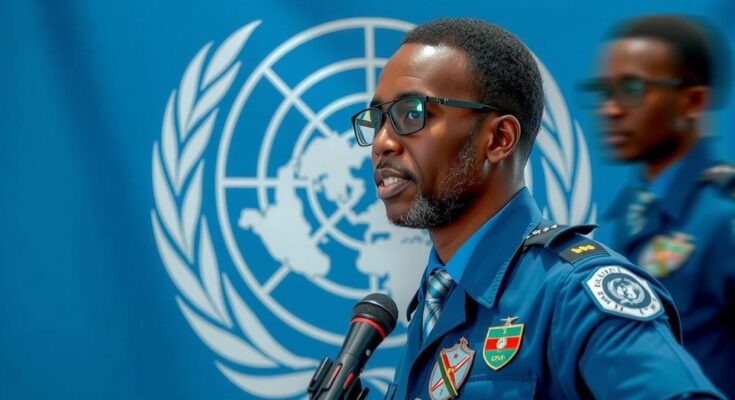The DRC is grappling with the complexities surrounding the potential withdrawal of UN peacekeepers amidst ongoing violence from armed groups, notably the Rwandan-backed M23. Despite the government’s push for stability and control over mineral-rich areas, local populations express frustration with U.N. forces, raising concerns over civilian safety. The geopolitical implications tied to valuable mineral resources amid increasing violence present substantial challenges for the future of peace in the region.
The Democratic Republic of Congo (DRC) is experiencing a precarious situation regarding the presence of United Nations peacekeepers, known as MONUSCO. Originally deployed to stabilize the region plagued by violence attributed to various armed groups, including the M23 rebel faction backed by Rwanda, the peacekeepers face increasing opposition from local populations. Despite the government’s desire for stability and control over the mineral-rich eastern regions, the escalating conflict and a deteriorating security situation have led to calls for the withdrawal of U.N. forces. Civilian safety remains a pressing concern, as many displaced individuals express frustration with both the presence and effectiveness of MONUSCO, questioning its capability to ensure peace. Consequently, the future of these peacekeepers is clouded by uncertainty amidst profound geopolitical implications tied to the region’s valuable mineral resources, such as cobalt and tantalum, which are critical for global markets.
The DRC has endured decades of conflict, with mineral wealth often fueling violence as various factions vie for control over lucrative resources. The MONUSCO mission was established with the objective of maintaining peace and supporting the Congolese government in restoring order. However, persistent issues, such as foreign interference, particularly from Rwanda, and ineffective governance have exacerbated the complexities of achieving lasting peace. Moreover, the population’s growing discontent with MONUSCO highlights the challenges of international peacekeeping in a context marked by deep-rooted instability and competing interests.
In summary, the situation in the DRC remains tenuous, as the interplay between the local populace’s distrust of U.N. peacekeepers and the ongoing threats from armed groups complicates the pursuit of stability. The international community faces a dilemma: balancing the need for security and humanitarian support with the desire of the Congolese government to reclaim authority over its territory. As the U.N. prepares for a potential withdrawal, the risks of leaving a security vacuum loom large, particularly given the region’s significance in the global mineral trade.
Original Source: www.voanews.com




